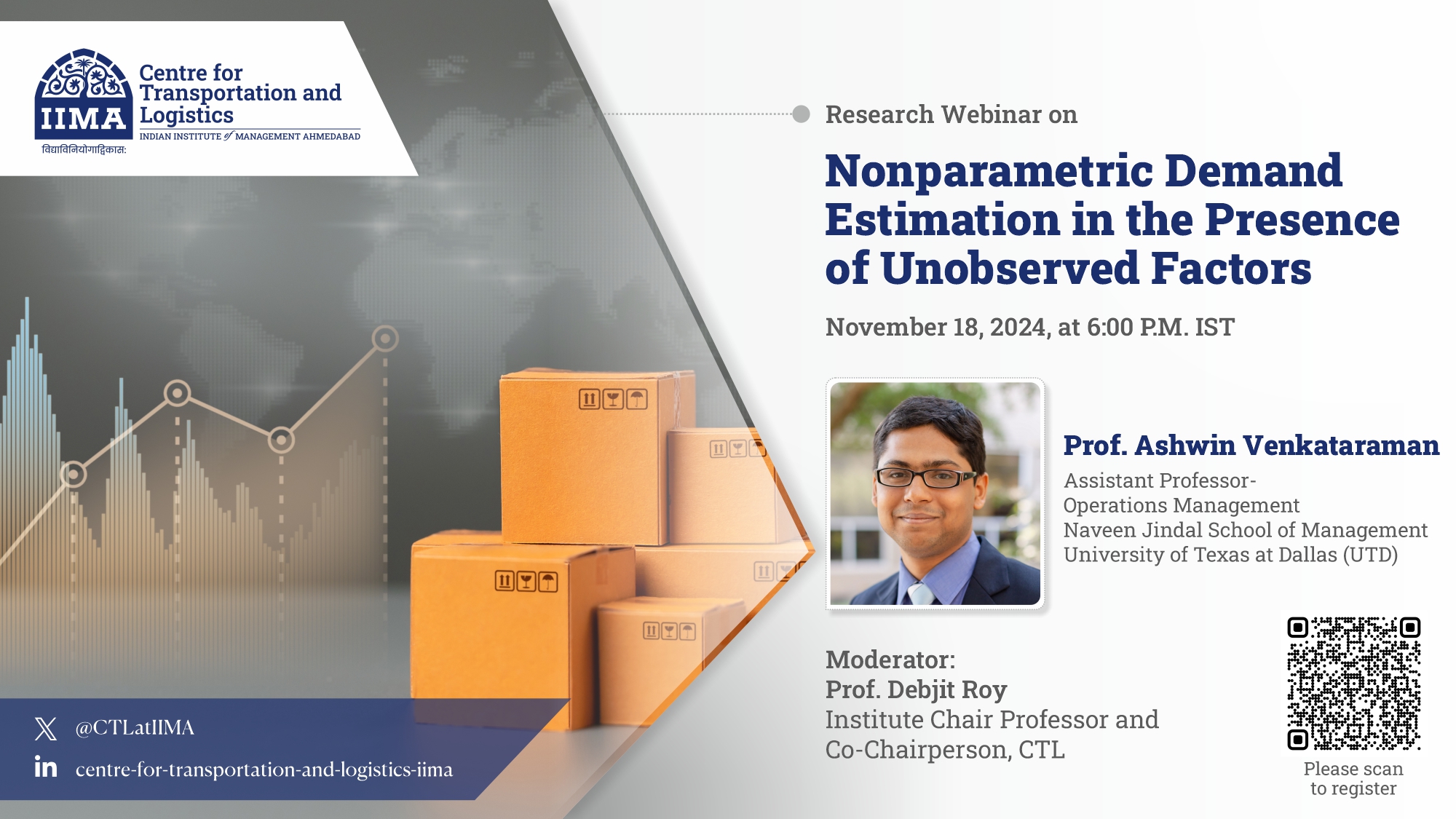
18/11/2024

Abstract: Customer demand is driven by a host of factors, often in complex ways. Therefore, practical demand models are designed to incorporate many observed features to be able to accurately capture customer preferences. However exhaustive, these models only account for observed features and frequently ignore the impact of unobserved features/factors (UFs). Brand awareness, product shelf positioning, local events, etc., impact demand in complicated ways but are difficult to observe in practice. Unsurprisingly, ignoring the UFs completely results in poor prediction performance.
In this work, we propose a novel method for accounting for UFs when modelling customer demand. We focus on the standard operational setting of a retailer offering its products in multiple stores with differing assortments across stores. The goal of the retailer is to predict demand as a function of the assortment and the prices, for which the retailer has access to historical sales transaction data. We model demand using a mixture of logits model, but do not make any parametric assumptions on the mixing distribution or the underlying mechanism generating the UFs.
Our approach involves treating the UFs as explicit model parameters, resulting in an overparameterized model, and employing a regularization approach which can be flexibly tuned based on the level of noise in the data to control for overfitting. We propose an alternating minimization algorithm to train our model on a large dataset and establish a sublinear rate of convergence to a stationary point. Using both theoretical and empirical analyses, we show that our method is robust to noise in the data and varying ground-truth mixing distributions. Using real-world grocery sales transaction data, we show that our method scales to real-world sized operational applications and that accounting for product and store-level UFs improves prediction accuracy by more than 63% on standard metrics across 11 product categories over a state-of-the-art benchmark that ignores UFs.
About the Speaker: Prof. Ashwin Venkataraman is an Assistant Professor of Operations Management at the Naveen Jindal School of Management, University of Texas at Dallas (UTD). His research centres on revenue management and pricing, with a particular emphasis on developing innovative models and methodologies that utilize the extensive data available to firms today. His work has been published in leading journals, including Operations Research, Management Science, and M&SOM. Prof. Ashwin holds an MS and PhD in Computer Science from the Courant Institute of Mathematical Sciences at New York University, where his doctoral thesis received an Honorable Mention (joint second-place) in the INFORMS Dantzig Dissertation Award. He also earned a B. Tech in Computer Science and Engineering from IIT Delhi.
